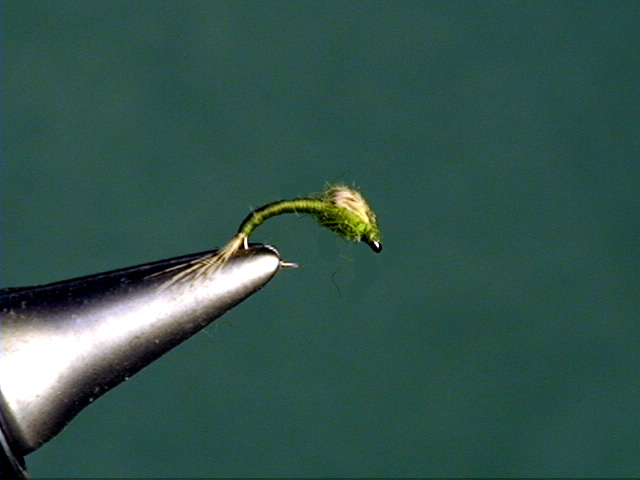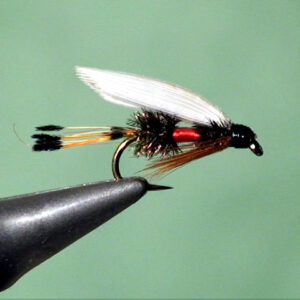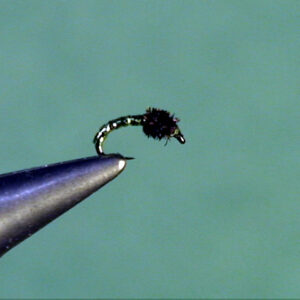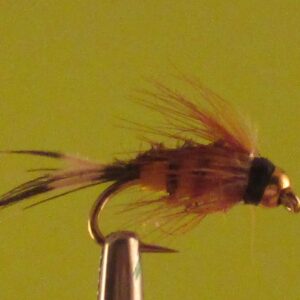Hook Size 18/20/22
The WD 40 Midge fly has become a very popular fly since its creation
In 1982. A Colorado angler, Mr. Mark Engler is the originator of the fly.
He designed the fly to imitate small nymphs and midge pupae for the
famous Frying Pan River. The fly popularity expanded from there to
worldwide. It’s unique name is one of the reasons for it but it also
catches trout.
The WD 40 midge fly uses wood duck feathers in both the wing case
and tail, giving it the clever “WD” name. Most anglers think it’s got
something to do with WD 40 Oil but it doesn’t.
Midges are aquatic insects that live in just about every trout stream or
lake in the World. They are very plentiful and very common insects.
Trout eat midge pupae all year long but they become most important
to the fly angler fishing for trout during cold weather when the water is
cold and few other aquatic insects hatch.
The WD 40 Midge fly can be fished on a dead drift in pools, eddies,
pockets, moderate to slow tailwater flows, spring creeks and all types
of water. It can be greased and fished in the skim to imitate emerging
nymphs and midge pupae or weight added and fished at various
depths.
Many anglers fish the WD 40 Midge fly only on or just off the bottom.
You should add some weight a few inches above the fly depending on
the depth of water and the speed of the current. It can be fished with
or without a strike indicator or dropped from a dry fly that floats on the
surface.




